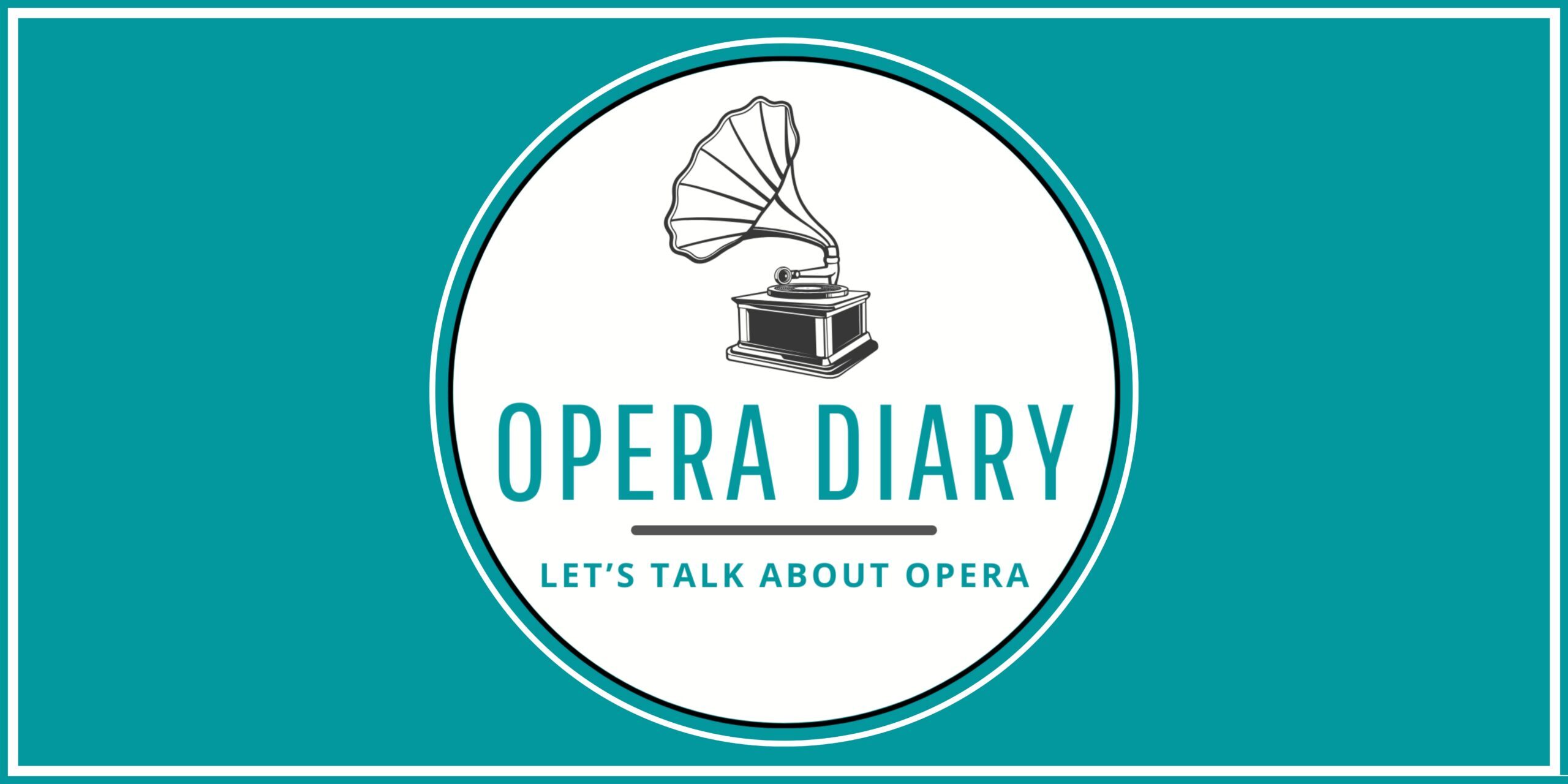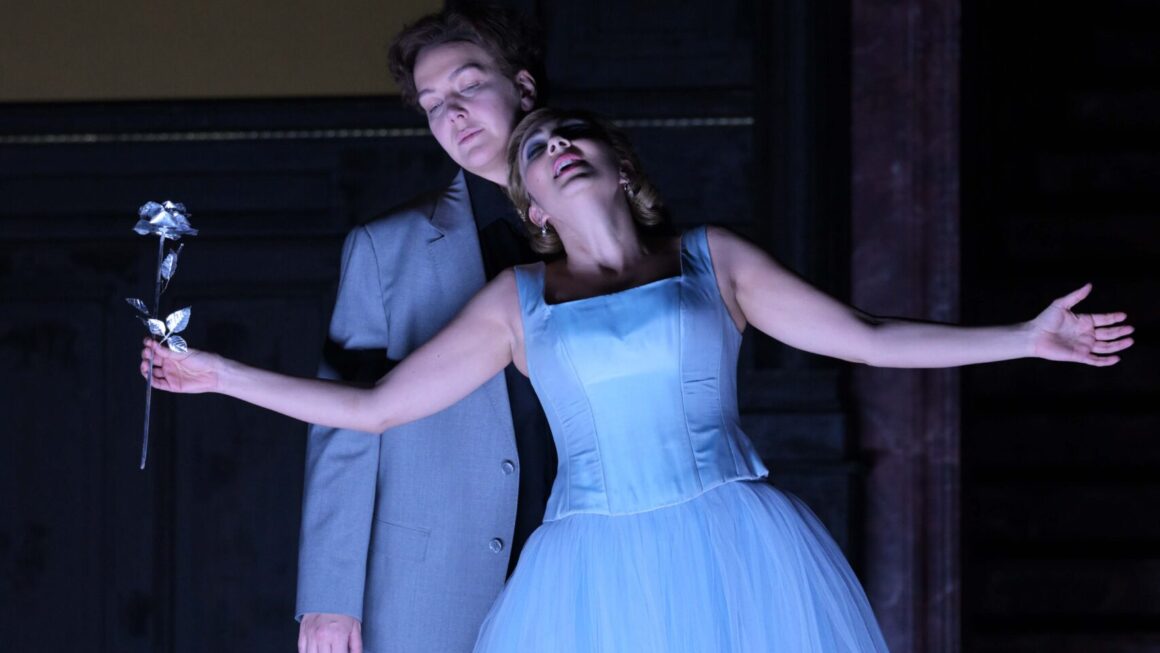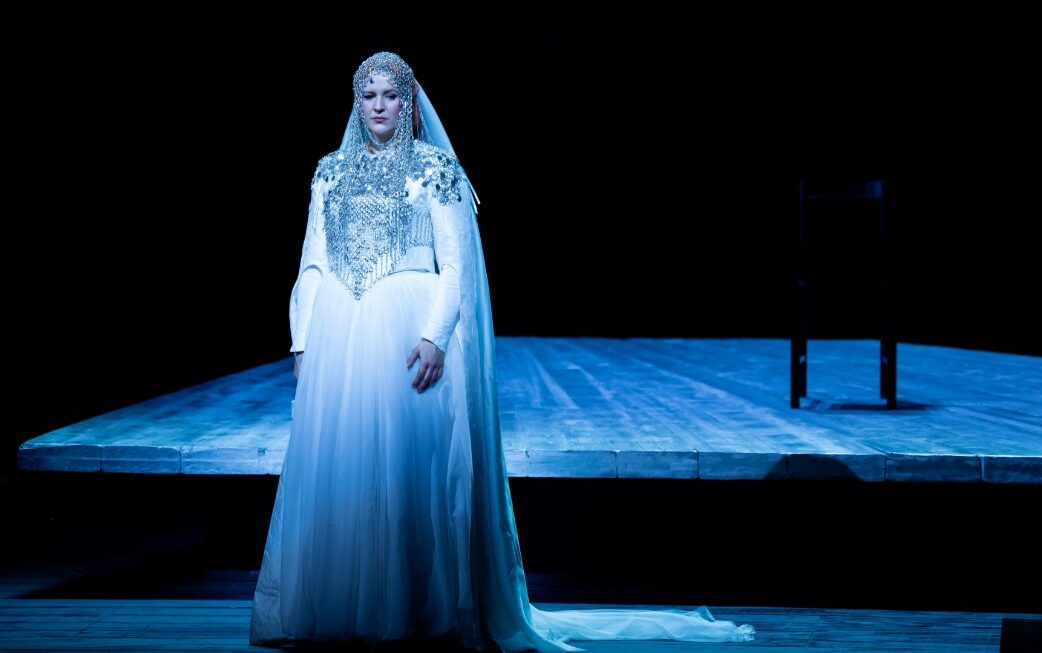Strauss/Hofmanntsthal’s best opera? Some will say so outright. Others will be more cautious, and think of the masterpieces Die Frau ohne Schatten and Elektra. We have no ambition to decide; what is certain is that they will always be nostalgic for the achievement that this work represents, during their almost 30 years of collaboration, seeking to reach the same level of poetic/dramatic/musical harmony as that achieved by this work. The most intriguing thing is to realise that the work was originally intended as a comédie des mœurs, centred around Baron Ochs – for a long time Strauss wanted the opera to be called… Ochs – and a “graceful young girl in the style of Farrar (Geraldine Farrar, an American soprano born in 1882) or Mary Garden (a Scottish soprano born in 1874), transvestite as a man”, according to Hofmannsthal. Gradually, interest shifted to the Marschallin and Octavian, and the subject of the passage of time (and its effects), so dear to Hofmanntsthal, became the background to what remains, despite all, a komödie sketching the habits and customs of (deliquescent) Viennese society under Maria Theresia von Österreich.
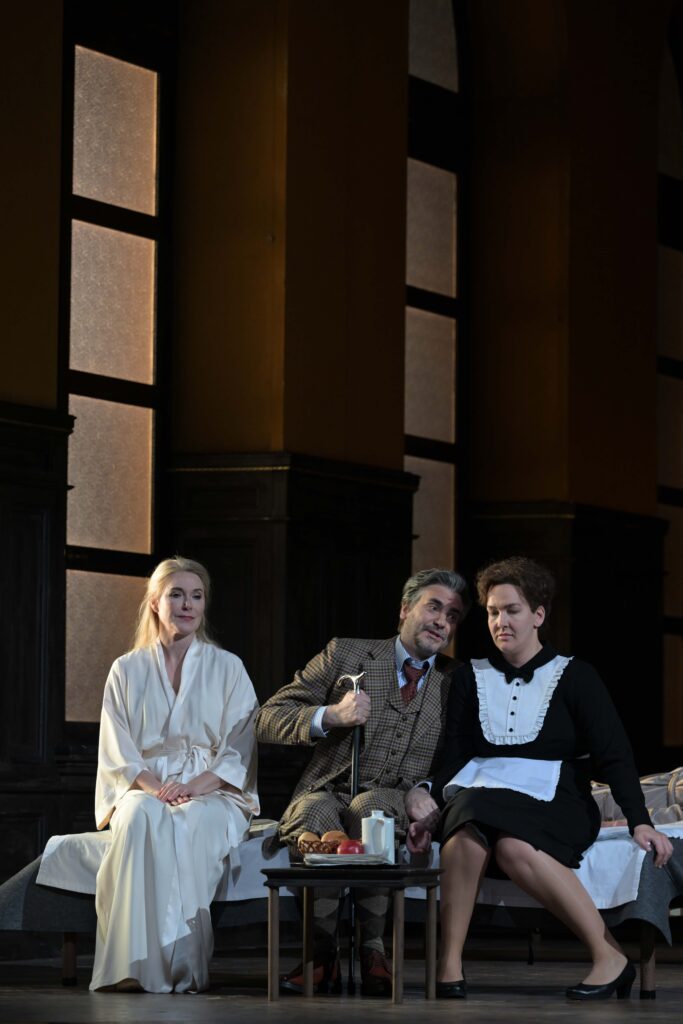
Starting from this corollary, Claus Guth has taken the idea to its extreme: time passes until the individual disappears; decadence ends when all is ruin. Thus the action takes place in a sanatorium where the Marshallin (Maria Bengtsson), suffering from a fatal disease, awaits her demise, allowing herself the ultimate pleasure of her affair with Octavian (Ida Ränzlöv). Maria Bengtsson’s reserved and solemn performance is the key to understanding the character’s intentions, hidden in her attitudes. Despite the physical and mental suffering that her illness (and her lucidity in the face of her imminent death) inflicts on her, despite the torment that the separation from Octavian represents, more than ever this Marschallin in these circumstances demonstrates and justifies why she is one of the most beautiful characters in the operatic repertoire. No exaggeration, no excess, a refinement equal to that expected: this soprano, with her fine diction, preserves a quality of articulation at all times, with a legato in which one feels all the richness of her career as a confirmed Mozartian and which diffuses, like a crystal diffracting the waves of light that pass through it, the many colours that translate the innumerable feelings that run through this character.

In Claus Guth’s vision, Octavian is indeed an intrepid, ebullient young boy whose maturity is built up smoothly, without abruptness, and which Ida Ränzlöv’s warm and well-channelled voice brings to life with perfect ease. Comfortable in all the registers that mark out the character’s vocal development, she seizes the opportunity to refine Octavian’s psychological evolution, showing that the love of living at Sophie’s side does not annihilate the memories left by his experience with the Marschallin. Her portrayal of Mariandel also succeeds: it is caricatured to perfection, much to the audience’s delight, and perfectly at odds with the young aristocrat. Elena Villalón’s interpretation of Sophie combines all the usual characteristics that make this character so endearing, with a touch of almost childlike innocence that is particularly moving. The high notes during the presentation of the rose are not quite what you’d expect, but we can’t praise enough the beauty and accuracy of the timbre and the delicacy of the singing during the trio and duet at the end of Act III.
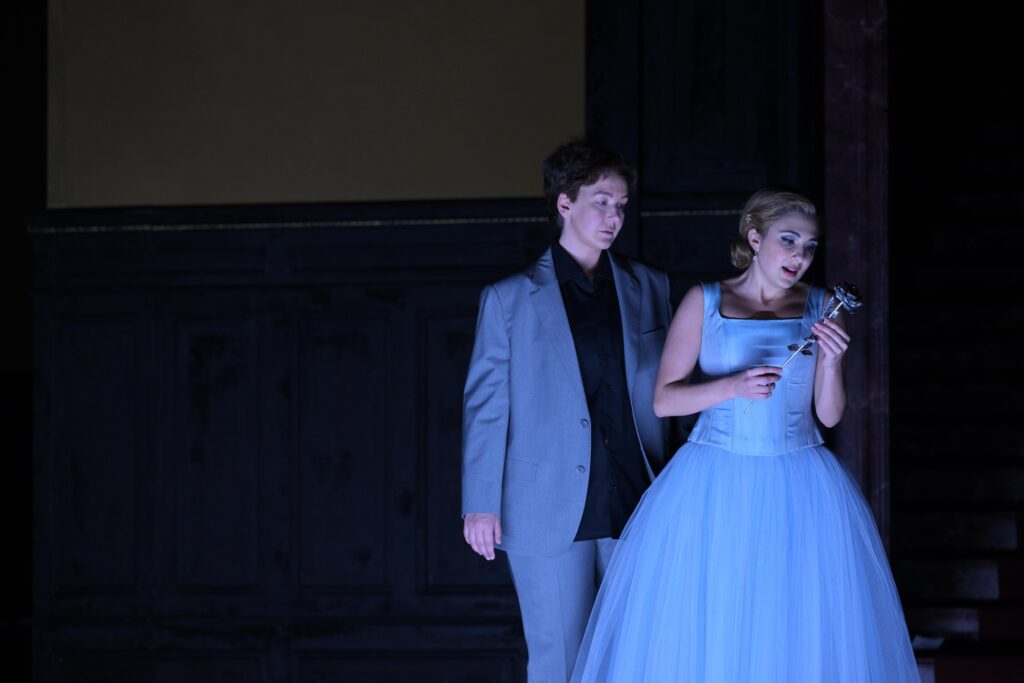
Charming rather than rustic, without an ounce of vulgarity, a libertine with elegance, playful at all times, Wilhelm Schwinghammer’s Baron Ochs has something of a true aristocrat about him, an attribute that we do not expect but which decorates the character with a charm to which we are not insensitive, making his Da lieg ich a subtle and richly ornamented beauty, completed by an inimitable extreme bass at the end of the second act. Another factor contributing to the success of this production is the high calibre of the supporting cast and their desire to do everything possible to ensure the show’s success. Michael McCown is an irreproachable Valzacchi, a veritable buffoon straight out of commedia dell’arte with perfectly controlled diction, and the best possible partner for Claudia Mahnke’s luxurious, refreshing and lively Annina, never overdoing it but giving just enough to leave us delighted. Eruptive, Magdalena Hinterdobler takes on an opulent Marianne, in keeping with her coppery and richly modulated vocal resources. A role début for Liviu Holender, the ubiquitous and colourful Fannial, with a remarkable presence from his first appearance, and a clear and well-projected timbre that we hope to see in other Straussian roles.

Thomas Guggeis’s conducting is immensely powerful. Petulant, breathless, but oh-so-elegant, the palette of expressions is so vast, a veritable springtime outpouring of intentions, suggestions and feelings in which we hear the synergy of the instruments while respecting their individuality: nothing crushed or overpowering, lightweight and fluid thanks to an extreme intimacy with the score and the idea they want to reflect in playing it. What a joy it is for the orchestra to follow the conductor in the frenzied rushes he imposes on it! In a video shared on YouTube (accessible here: Deep Dive mit Thomas Guggeis zu “Der Rosenkavalier” | Oper Frankfurt) in which he gives his assessment of the work, Thomas Guggeis says that “it sounds like silver liquid flowing from the sky”. By a miracle that only sensitivity to art of this kind is capable of apprehending, we are certain that this silver has spread throughout the theatre of the Oper Frankfurt via its masterful direction.
Casting: Feldmarschallin Fürstin von Werdenberg (Maria Bengtsson) • Baron Ochs von Lerchenau (Wilhelm Schwinghammer) • Octavian/Mariandel (Ida Ränzlöv) • Herr von Faninal (Liviu Holender) • Sophie (Elena Villalón) • Marianne Leitmetzerin (Magdalena Hinterdobler) • Valzacchi (Michael McCown) • Annina (Claudia Mahnke) • Polizeikommissär (Božidar Smiljanić) • Haushofmeister der Marschallin/Wirt (Magnus Dietrich) • Haushofmeister bei Faninal (Peter Marsh) • Ein Notar (Franz Mayer) • Ein Sänger (Kudaibergen Abildin) • Eine Modistin (Magdalena Tomczuk) • Ein Tierhändler (Donát Havár) • Drei adlige Waisen (Stefanie Heidinger/Enikö Boros/Hiromi Mori) • Chor der Oper Frankfurt • Frankfurter Opern- und Museumsorchester
(For further informations) Link to the Oper Frankfurt website: Der Rosenkavalier (2025 production) – Oper Frankfurt
